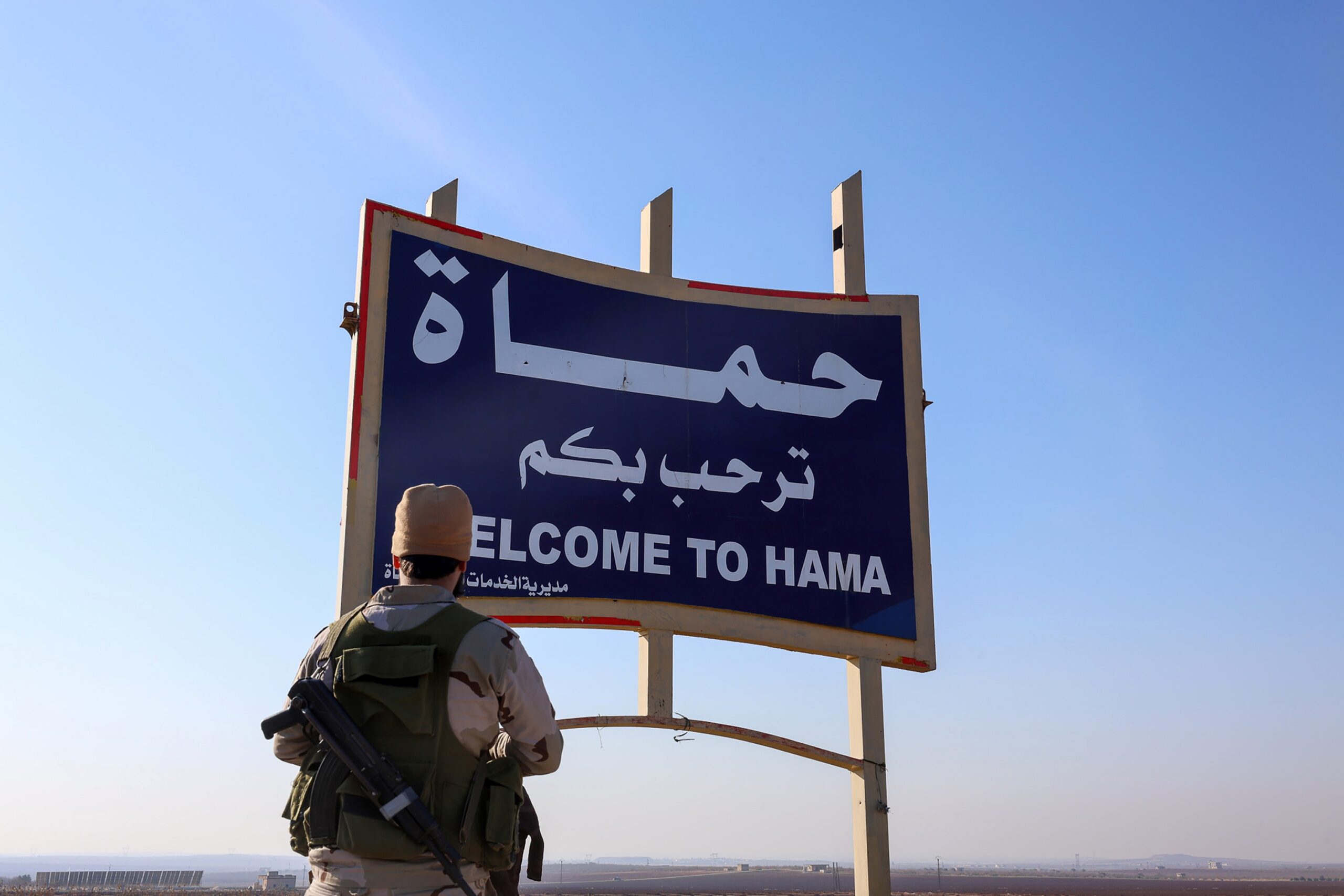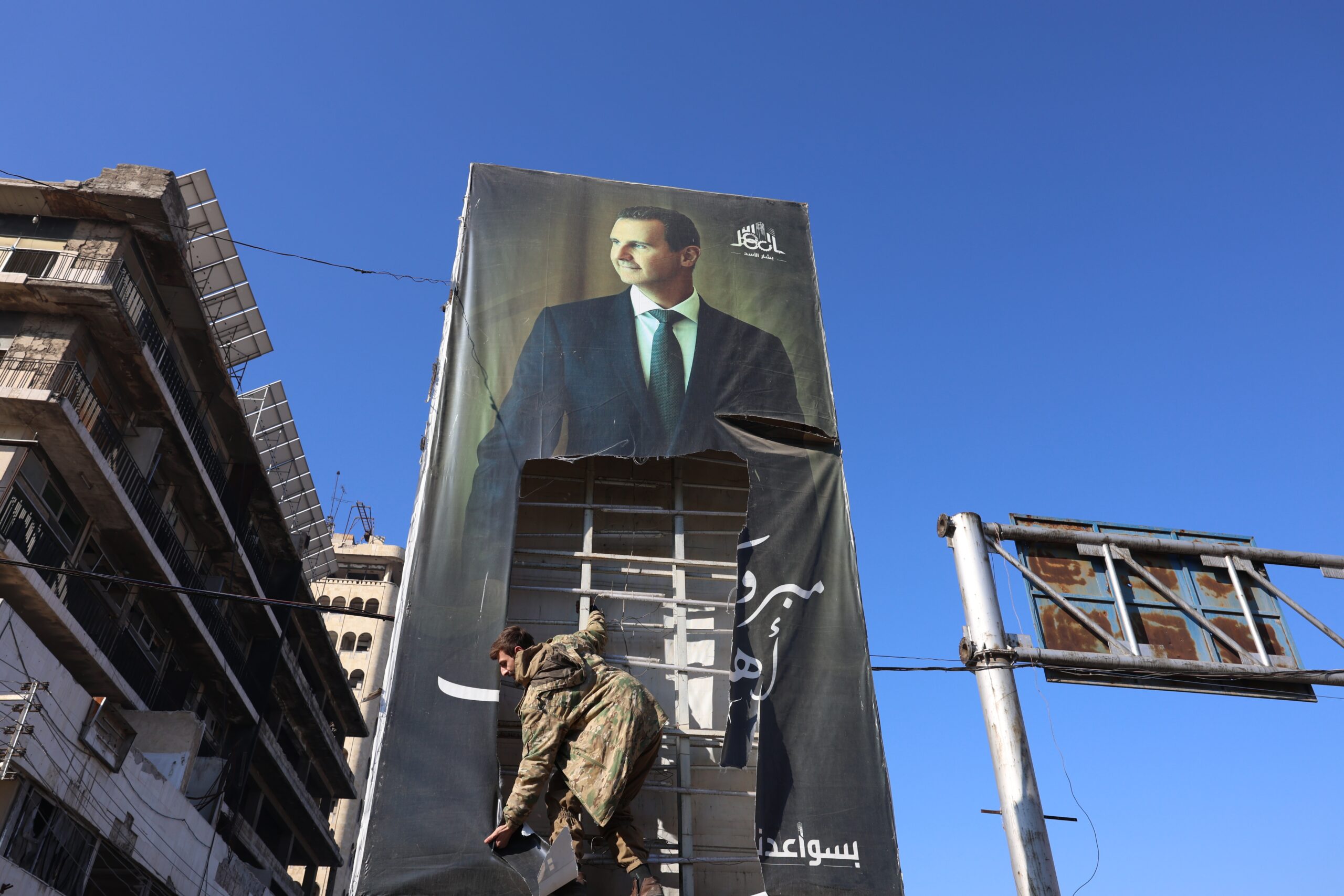What is happening in the Middle East right now?
We examine the latest developments in the Syrian civil war, which put Iran further in crisis and present Israel with a strategic dilemma.

Anti-government fighters patrol in central Aleppo on November 30, 2024.
Iran is in a panic because its “masterpiece,” Hezbollah, has collapsed. If Hassan Nasrallah had not been killed, high-ranking Iranian officials believe he would have had to be removed from office. The Sunnis are gaining strength and are opposing the Shiite axis. Iran is under pressure because the Syrian region is in danger.
Russia and the USA are regaining their dominance in the region, which indicates a possible reversal of previous developments. At the same time, an extremely dramatic development can be observed in Syria: even in the worst days of the civil war, the situation of Syrian President Bashar al-Assad was not as precarious as it is today.
The rebels are drawing strength from the defeat of the Shiite axis in Lebanon at the hands of Israel, and are conquering more and more areas in Syria. They have even taken control of the important city of Hama, where they are freeing prisoners. The Syrian army is collapsing.

Assad is desperately seeking support from Iran, but Iran is holding back – both out of fear of escalation and because of Israel’s intervention: Israel has already intercepted Iranian planes that were trying to reach Syria twice, most recently yesterday. Russia is also refusing to give Assad much-needed help.
Given the growing pressure, the question arises: Could Assad turn away from the Shiite axis? What concrete steps would be necessary for Israel, Russia, and the US to persuade him to make such a U-turn?
The impact of Israel’s successes against Hezbollah and Iran is immense. The latest developments in the Syrian civil war, in particular the rapid advance of the rebels, are presenting Israel with a number of complex strategic dilemmas. On the one hand, the deterioration of the situation in its northern neighbor poses significant security risks; on the other hand, it opens up unique opportunities to influence the regional balance of power.
Israel faces three main threats:
- Sophisticated weapons in enemy hands: The possibility of missiles, rocket systems, or even chemical weapons falling into the hands of jihadist forces poses an imminent threat to Israel’s security. The al-Safira area southeast of Aleppo, a center for the production of missiles and non-conventional weapons systems with Iranian support, is in the rebels’ sights. According to foreign reports, Israel is operating militarily in the area to prevent the possible use of such weapons against itself.
- Iranian presence in Syria: The Assad regime’s growing weakness increases its dependence on Iranian support and Shiite militias, including the Revolutionary Guard-backed Fatemiyoun Brigade. These fighters could establish themselves on Israel’s northern border and use Syria as a base for missile attacks or ground offensives.
- Collapse of the Assad regime: A complete collapse of the Assad regime could turn Syria into a failed state like Yemen or Libya, with Sunni and Shiite jihadist forces fighting each other. This scenario would pose an immediate threat to communities in the Golan Heights and Galilee, forcing Israel to provide physical protection and launch preemptive strikes.
Against this backdrop, Prime Minister Benjamin Netanyahu has called an emergency meeting of the security cabinet.
Turkey as the driving force behind rebel attacks
The driving force behind the rebel offensives is Turkey. President Recep Tayyip Erdoğan is using the Sunni rebels on two fronts to advance his country’s strategic interests. On the one hand, he is trying to break up the autonomous region founded by the Kurds in northeastern Syria, which he sees as a direct threat to Turkey’s territorial integrity. On the other hand, he is using jihadist rebels to put pressure on Assad to agree to the establishment of a Turkish security zone in Syria and the return of Syrian refugees currently in Turkey.

Opportunity and risk
The current situation opens a window of opportunity for Israel to put pressure on Assad. If Assad perceives Israel as the main threat, he may be reluctant to deepen cooperation with Iran and Hezbollah. Nevertheless, a scenario in which the rebels take control of all of Syria or the country breaks apart also poses significant risks for Israel and Turkey.
Like Israel, Turkey is not interested in a complete collapse of the regime. For Erdoğan, further chaos on the Turkish-Syrian border could pose a direct threat to Turkey’s stability.
What’s next?
The new reality in Syria is forcing Israel to balance between targeted preventive measures and preparing for broader scenarios. Israel’s current response includes preemptive strikes and cooperation with international actors. But the big question remains: Will the collapse of Syria become a major threat or an opportunity to rebalance the regional balance of power?
Israel, like Turkey, will continue to act with a clear view: a post-Assad Syria, should it come to that, will be very different, but not necessarily more stable or safer.

No comments:
Post a Comment